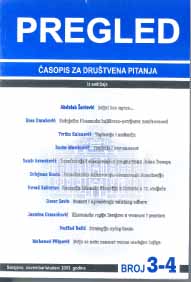Dometi i ograničenja valutnog odbora
Currency board – possibilities and limitations
Author(s): Davor SavinSubject(s): Economy
Published by: Univerzitet u Sarajevu
Summary/Abstract: Currency board (CB) is a monetary authority, which issues money convertible in foreign currency as a fixed exchange rate anchor. In principle, the currency board is established as a replacement of the central bank, although it often coexists with the central bank. The CB arrangement is adopted as a means of achievement of financial and monetary discipline and stabilisation of the economy. The basic benefits from the currency board are that it gives credibility of the regime of fixed foreign exchange rates. Fixed rate between the domestic currency and foreign anchor currency tends to keep interest rates and inflation roughly the same as those in the anchor country. However, in the currency board regime domestic control of the monetary policy does not exist. Money supply goes up if there is an inflow of foreign currency into the economy and contracts when there is an outflow. There is no possibility for the use of monetary instruments in regulating aggregate demand and employment. With a currency board, the central bank becomes a passive observer in all financial and monetary arrangements.
Journal: PREGLED - časopis za društvena pitanja
- Issue Year: XLIV/2003
- Issue No: 3-4
- Page Range: 84-96
- Page Count: 13
- Language: Bosnian

